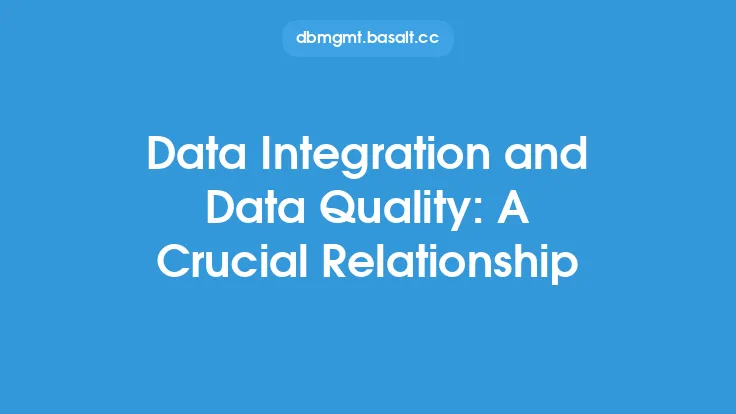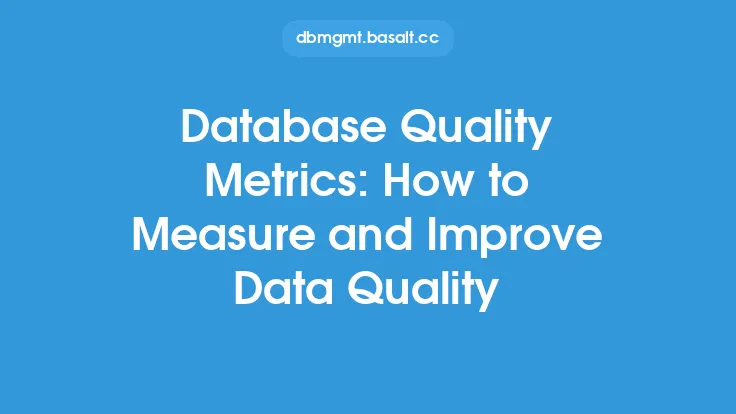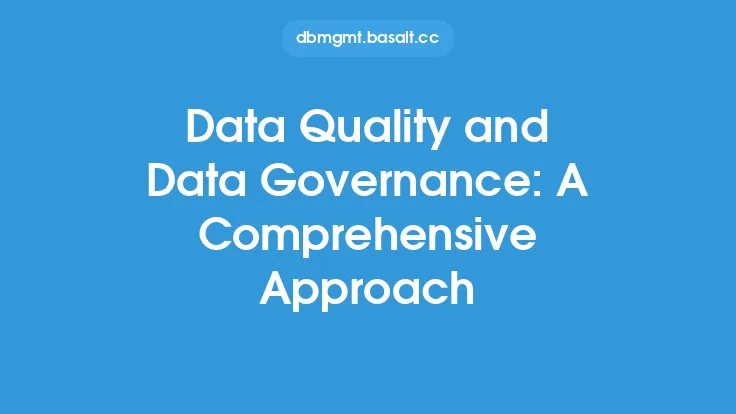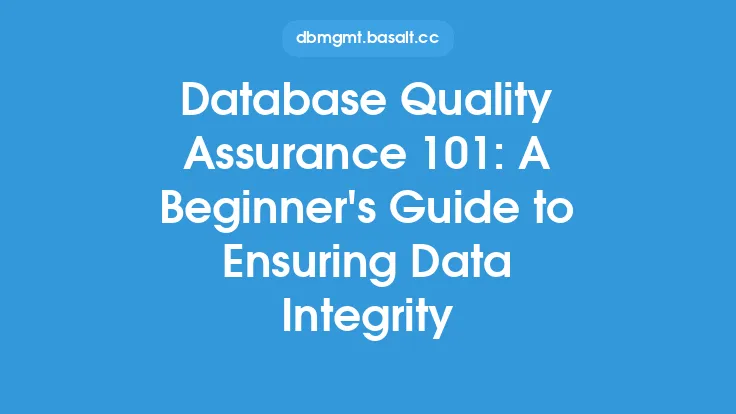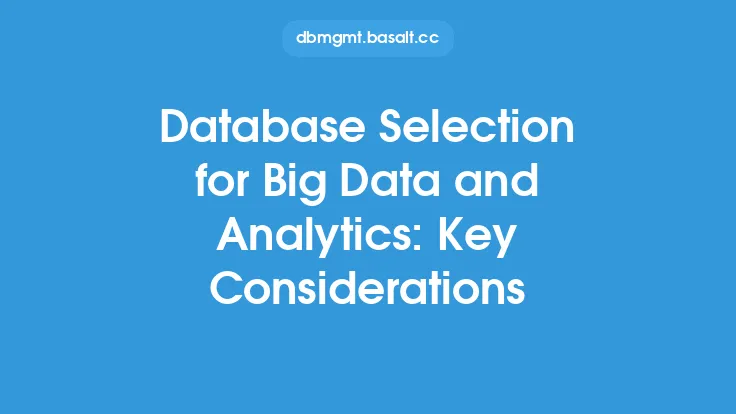Database governance and data quality are two interconnected concepts that play a crucial role in ensuring the overall health and reliability of an organization's data assets. At its core, database governance refers to the set of policies, procedures, and standards that govern the management and use of data within an organization. This includes everything from data creation and storage to data access and disposal. Data quality, on the other hand, refers to the accuracy, completeness, and consistency of an organization's data. In this article, we will explore the direct relationship between database governance and data quality, and why this relationship is essential for organizations that rely on data to drive their operations.
Introduction to Database Governance
Database governance is a critical component of any organization's data management strategy. It provides a framework for ensuring that data is managed in a way that is consistent with the organization's overall goals and objectives. This includes establishing policies and procedures for data creation, storage, and access, as well as standards for data quality and integrity. Effective database governance also involves ensuring that data is properly secured, both in terms of access controls and backup and recovery procedures. By establishing a robust governance framework, organizations can ensure that their data assets are properly managed and protected, which is essential for maintaining data quality.
The Importance of Data Quality
Data quality is a critical aspect of any organization's data management strategy. High-quality data is essential for making informed business decisions, as it provides a reliable and accurate basis for analysis and reporting. Poor data quality, on the other hand, can have serious consequences, including incorrect business decisions, wasted resources, and damage to an organization's reputation. Data quality issues can arise from a variety of sources, including human error, system errors, and data integration issues. By implementing effective database governance policies and procedures, organizations can help to ensure that their data is accurate, complete, and consistent, which is essential for maintaining high data quality.
The Relationship Between Database Governance and Data Quality
The relationship between database governance and data quality is direct and interdependent. Effective database governance is essential for ensuring high data quality, as it provides a framework for managing data in a way that is consistent with an organization's overall goals and objectives. This includes establishing policies and procedures for data creation, storage, and access, as well as standards for data quality and integrity. By implementing robust governance policies and procedures, organizations can help to ensure that their data is accurate, complete, and consistent, which is essential for maintaining high data quality. Conversely, poor data quality can have serious consequences for an organization's database governance framework, as it can undermine the reliability and accuracy of the data assets that the framework is designed to manage.
Technical Aspects of Database Governance and Data Quality
From a technical perspective, database governance and data quality are closely intertwined. Database management systems (DBMS) provide a range of features and tools that can be used to implement effective database governance policies and procedures. These include data validation and verification tools, data normalization and denormalization techniques, and data backup and recovery procedures. Additionally, many DBMS provide features such as data encryption, access controls, and auditing, which can be used to ensure that data is properly secured and protected. By leveraging these technical features and tools, organizations can implement robust database governance policies and procedures that help to ensure high data quality.
Best Practices for Implementing Database Governance and Data Quality
Implementing effective database governance and data quality policies and procedures requires a combination of technical and business expertise. Some best practices for implementing database governance and data quality include establishing clear policies and procedures for data creation, storage, and access, as well as standards for data quality and integrity. Additionally, organizations should implement robust data validation and verification procedures, as well as data backup and recovery procedures. Regular data quality audits and assessments should also be performed to identify and address any data quality issues. By following these best practices, organizations can help to ensure that their data assets are properly managed and protected, which is essential for maintaining high data quality.
Conclusion
In conclusion, database governance and data quality are two interconnected concepts that play a crucial role in ensuring the overall health and reliability of an organization's data assets. Effective database governance is essential for ensuring high data quality, as it provides a framework for managing data in a way that is consistent with an organization's overall goals and objectives. By implementing robust governance policies and procedures, organizations can help to ensure that their data is accurate, complete, and consistent, which is essential for maintaining high data quality. By understanding the direct relationship between database governance and data quality, organizations can take steps to implement effective governance policies and procedures that help to ensure the reliability and accuracy of their data assets.
